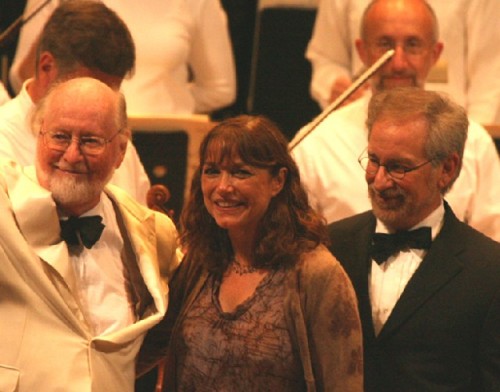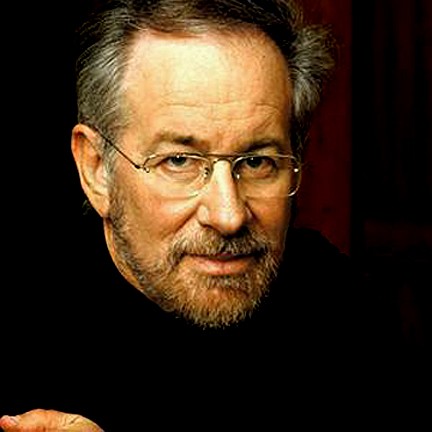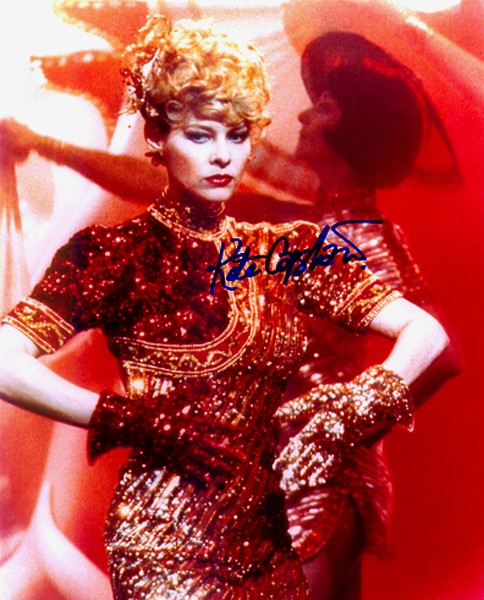Steven Spielberg Joins John Williams at Tanglewood
10th Annual Film Night a Tribute to Indiana Jones
By: Charles Giuliano - Jul 27, 2008
For his Tenth Annual Film Night, one of the most anticipated Tanglewood events, John Williams wanted a special celebration. He told the audience how much he anticipated this opportunity, one night a year, to conduct the magnificent Boston Pops Orchestra. He excused himself for stating that it was a case of "Hollywood on the Hoosatonic."
The remark was typical of the warmth and humor that the creator of more than 100 film scores, some the most famous of his generation, exuded from the stage. Clearly he was having fun and that drew in the audience for an evening that was filled with spontaneous bursts of applause and flew by in a blur. By far, it was the most enjoyable evening at Tanglewood this season.. Wonderful Pops music, no apologies, just for the fun of it.
Even though, yet again, it was a soggy evening (the downpour stopped just before show time) the Koussevitzky Shed was packed and the lawn was almost as densely populated as it had been for two sold out evenings of James Taylor. It demonstrated that if Tanglewood lightens up and programs more evenings of Pops that people will come in droves.
Williams is also a wonderful teacher as he provided a succinct overview of writing music for films. He commenced the evening with a medley of his scores and the audience went bonkers when he played a snippet of the theme from "Star Wars." He would return to that briefly as an encore. He followed with a bit of history performing excerpts from the score for the 1938 "The Adventures of Robin Hood" by the pioneer Erich Wolfgang Korngold.
Introducing an excerpt for the 1951 film "A Place in the Sun," directed by George Stevens, he set the mood for the music. The film was based on the classic novel "An American Tragedy" by Theodore Dreiser and starred Elizabeth Taylor, Montgomery Clift and Shelly Winters. The poignant alto sax solo, to a score by Franz Waxman, was performed by Kenneth Radnovsky.
Continuing the history lesson Williams discussed those pioneers of writing for film. He described early days in Hollywood as a jazz pianist who often had gigs with those studio orchestras. He worked his way into a phenomenal career from the ground up.
From the historic sequence of the program the rest of the evening was devoted to his own music. Williams followed with excerpts including "Flight to Neverland" from "Hook" and the theme from "Sabrina" which featured a richly compelling solo by the violinist Tamara Smirnova. The conductor exchanged a warm hug following her performance.
A screen was lowered over the stage as he introduced scenes from Steven Spielberg's "Close Encounters of the Third Kind." Unlike most Sci Fi films he described it as unique in that the Aliens were gentle, intelligent and friendly beings. We saw the sequence in which the boy is abducted. For Williams not "abducted" but rather "borrowed, studied and then later returned." It was thrilling to see this familiar footage with a live orchestra conducted by the composer.
Departing briefly from film scores he screened a sequence from "The Olympics Spirit" with footage of gold medal moments. He told the audience that "If you ever get down on the younger generation" they should be inspired by the performances of these superb athletes. While it doesn't get better, after an intermission, Williams actually kicked it up a notch.
The second half of the program was devoted to the several films in Steven Spielberg/ George Lucas series starring Harrison Ford as Indiana Jones. With the Boston University Tanglewood Institute Young Artists Chorus he conducted the opening credits for "The Temple of Doom" a song and dance arrangement of the 1934 Cole Porter standard "Anything Goes" starring Kate Capshaw.
Williams brought out Kate Capshaw for a bow. He then informed the audience that "I suppose you would like to meet her husband, Steven Spielberg." The audience was stunned and thrilled when the famous film director and producer walked on stage. Spielberg quipped that he had first met Capshaw when they were working on "Temple of Doom" and that since then "Anything Goes" is an apt description of their relationship as "she changed my life for the better."
Through the rest of the program Spielberg narrated between excerpts of the various scores including the most recent "Kingdom of the Crystal Skull." Projections of some of the most memorable scenes accompanied the music. He also supplied amusing anecdotes. "When we were on location in Tunisia," he said. "Harrison told me that he had dined at the wrong restaurant the night before and would need to be near a bathroom that day. But that he could give me one good hour. We were shooting a sequence in which Indiana Jones is challenged by a man with an enormous scimitar." The famous sequence was screened in which, when threatened, Jones suddenly pulled his revolver and shot the man. Apparently, after just an hour, it was a wrap. "Necessity is the mother of invention" Spielberg explained that often one has to improvise and make changes on the set "That saved me three days of shooting and about $300,000 which I am sure was just fine with the studio."
In one of the most interesting sequences of the evening Spielberg discussed how once the film is shot it is then brought to Williams for his music. He then screened and narrated a segment featuring the back story during teenage years of how Indiana Jones had evolved. This entailed a chase in which the teenager mounts a horse, then climbs onto a train hauling a circus. He scrambles away from bandits who want to steal a priceless artifact he has discovered as a fledgling archaeologist. The chase takes him through cars full of reptiles, a lion (on whom he first uses the famous whip) and amusing encounters with a rhinoceros. The footage was then replayed with Williams conducting the music he composed. It proved to be a wonderful lesson in filmmaking from two of the greatest masters.
When the program ended the audience was hungry for more. Williams returned and Spielberg introduced a new revision of "Marion's Theme," written for the character Marion Ravenwood, starring Karen Allen. She was an earlier love interest of Jones who returned in the recent film "Kingdom of the Crystal Skull." The Berkshire based actress was then brought on stage to great applause.
After another exit and return Williams closed the evening with, what else, an excerpt of his most memorable and popular score the music for "Star Wars." It was the perfect ending. Let's do it again next year, It doesn't get better than Oscar Night in the Berkshires.







